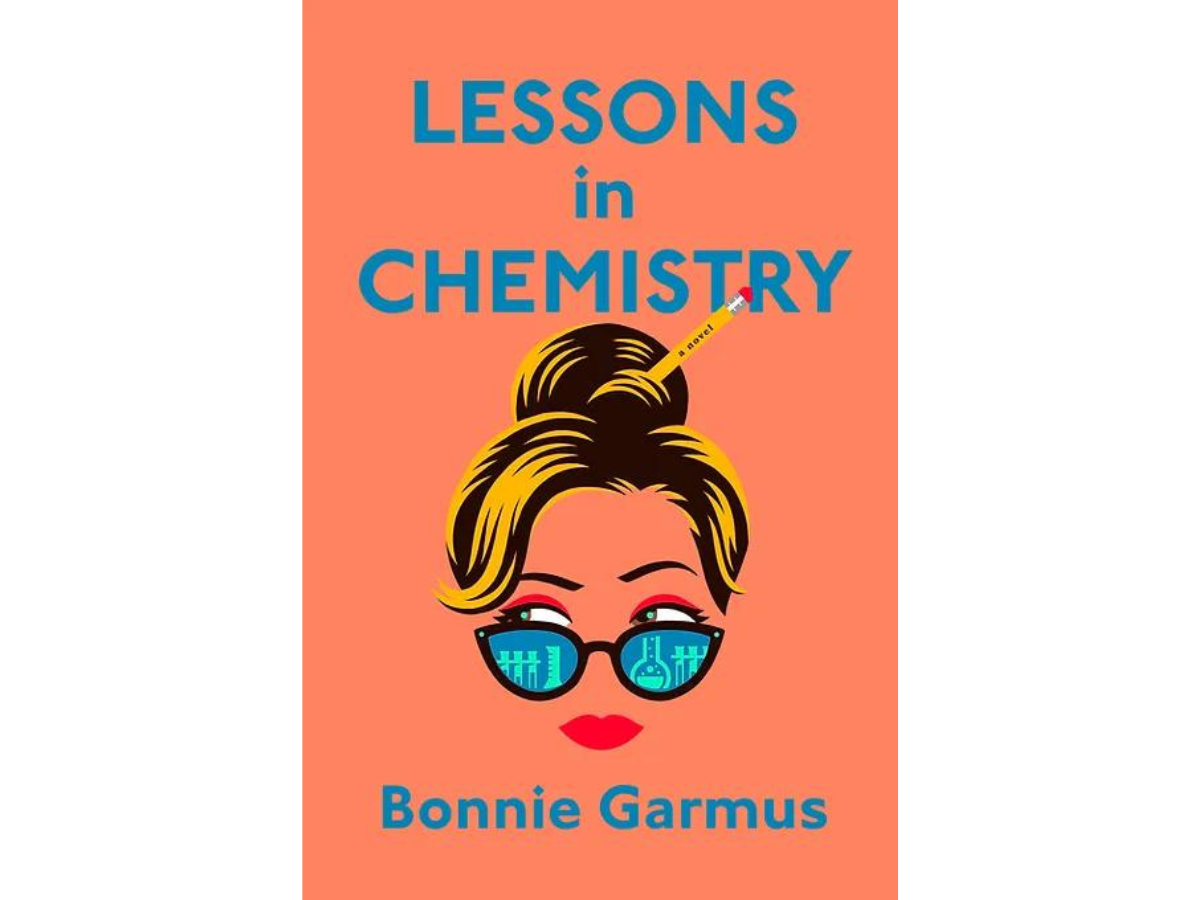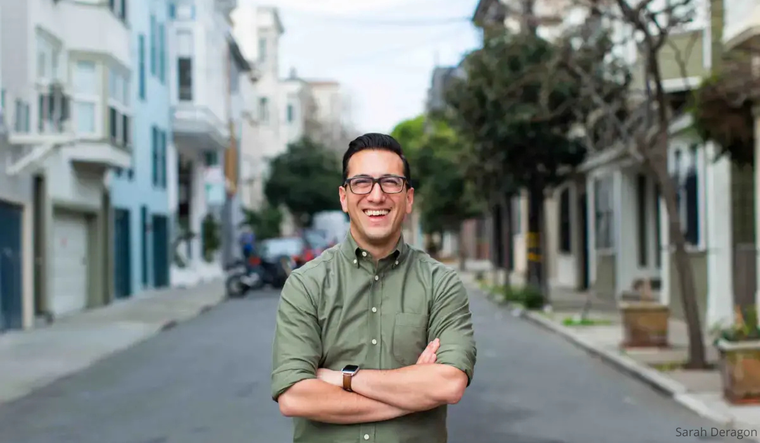Her Novel Was Rejected 98 Times—Now She's a Global Bestselling Author. Bonnie Garmus, at 66, Shares How She Never Gave Up
Walk into a bookstore these days, and Lessons in Chemistry will be sitting prominently, its bright cover stealing the light. The same goes on Instagram or on the beach, where you'll see people clutching it nose-deep. The irreverent, courageous novel by Bonnie Garmus is everywhere—having sold more than 2.5 million copies in the US and holding a spot on the New York Times bestseller list for over a year.
Lessons in Chemistry's extraordinary success begs the assumption: Garmus is a seasoned pro novelist. Well, the first part is true. Garmus has been a longtime successful copywriter. But the novelist part? That came way later. Fueled by a lifelong desire to write novels, Garmus was 64 when Lessons in Chemistry, her first novel, was published last year—and this followed her receiving 98 rejections from literary agents.
Much like her novel's protagonist, Garmus' story is one of grit and wit. It's also a lesson in knowing it's never too late. The Sunday Paper called her to discuss her path and staying true to herself. As our conversation proves, her progression from copywriting to global fanfare novel writing was least of all expected by Garmus. "It's strange," she says. "I'm sitting here at my dining room table, as I've been doing for the last 20 years, working. I've just shifted into book promotion and writing a new book now. But it's still work, which I like. But I didn't expect this!"
A CONVERSATION WITH BONNIE GARMUS
Bonnie, did you indeed receive 98 rejections before Lessons in Chemistry?
Yes! And they were all from agents. What happened was I had written a novel that was approximately 700 pages. I liked it, so I sent it out for queries, but people wouldn't even look at it. I couldn't understand why they wouldn't consider reading any part of it. Finally, agent number 98 said that she would read part of it—and she did. She wrote back the next day and said, 'You write well, but you don't understand this industry…' The email was pretty nasty, but it was also a very big help. She said, 'No one's going to look at a debut author's 700-page novel—ever. Do yourself a favor and write a novel of appropriate length, and you can send me that when you finish'—which I never did. But that all turned into Lessons in Chemistry. I started completely new. I felt like I couldn't change the story [of the first novel] because it was very tightly structured. So I thought, that's my practice novel, and I put it away. I'm borrowing a few things from it for my book that I'm working on now.
So you were 64 when your novel came out...
Yes. It's funny because the book was done when I was 62, but publishing takes forever. I turned my manuscript over, and the publishers said, 'Okay, 18 months,' and I thought, How can it possibly take 18 months? But I was naive enough not to realize, of course, they do reviews and pre-marketing. But yes, I was 64 when it came out, and it was really incredible—just incredible.
What has this journey taught you about staying open to learning?
Luckily, with my job as a copywriter, my whole world has always been about research, exploration, and figuring out new things and how they work, even about topics I'm not interested in. So when I sat down to write Lessons and Chemistry, I decided to make [the protagonist] Elizabeth Zott a chemist. I thought that I'd learn chemistry. Then I started to try to teach it to myself, and I realized, This is a little harder than knowing Unix or something like that! There was a learning curve. But I've always been very interested in new things and lived in many places. I take online courses. I even took a taxidermy class once. There's a lot in the world that I'm interested in, and I hope I never lose that interest in learning.
You've talked about "constructive anger," which comes from a moment in your career. What is "constructive anger," and how have you used it to fuel your first novel?
After I got the 98 rejections, that sent me down to the mat. I was pretty blue about that. Every single rejection feels very personal when it's your work. Luckily, I'm used to rejection as a writer; all writers are. It's one person's opinion. I have to pick myself up, move forward, and hopefully learn something from it.
In terms of this book and my constructive anger, what had happened was I'd been in a meeting for a big tech company where I was presenting my concepts for a major ad campaign. Once again, I was the only woman in the room. I was steamrolled that day. It was like I hadn't been sitting there giving this major presentation: People talked over me, and later, my ideas were stolen by somebody in that room who claimed it all to be his own. And even though I'd worked with many of those men in that room for probably 10 years, no one said anything in my defense.
When I returned to my desk, I was really angry because I thought about how many people had experienced that same thing that same day. Then I multiplied that by weeks, years, and months—how much work had been wasted and taken by other people. So instead of working, I wrote the first chapter of Lessons in Chemistry. It was fueled by that passion and that anger. I do think of it as constructive anger because you can get angry and kick things, or you can say, 'I'm going to try to do something about this. I'm going to say something about this.' I was surprised that the book ended up being as popular as it was, but I realized how many people have been in this position and how many feel the same way.
You set Lessons in Chemistry in the late 1950s and early 1960s. Why this time?
On that day, I wondered if we had moved forward as women in the world. I'd been shut down in other meetings before, but on that particular day, I thought you had to be kidding me. Is this 1958? I couldn't believe it. So I decided to set it then because I needed reassurance that we have moved forward as women, that women have some equality in the world. But we are slipping back in the United States, which is a huge worry.
But then, when I was writing the book, about four or five chapters in, I realized that this was when my mom had just become a mom. I was very little. So my mom lived in this era, which was a tough time for women in the United States because they were being told that their lives were easy, and their lives were not easy. They were also being called average, every last one of them, and they were not average. So I looked back at my mom, who was so great, and thought, my god, that poor woman. My dad was great too, but my parents were byproducts of that postwar time when people had many children, and the women stayed home. My mother did not want to do that. She was a nurse and wanted to be in a hospital, but she had to give that up.
Your story and that of the character Elizabeth are filled with possibility. What do you say to somebody in their 60s, 70s, 80, or beyond about making changes and pursuing dreams?
The media often will tell us that you're going downhill once you reach your 60s. I think the opposite. As you get older, you have more and more experiences to draw on. It's really important for people not to listen to these stories that everything starts shutting down when you're 60. It's so important to realize you may actually be getting stronger.
I have a friend who recently turned 60, and she said, 'It's all over.' And I said to her, 'It's all over when you say it's all over.' For me, it's just starting. And it's just starting for a lot of other people. And you know what? After you reach your 60s, you get to quit your day job and do whatever you want. So find something you really want to be doing, and you'll be good at it as long as you pursue it. Don't listen to naysayers telling you you're too sick, too old, or incapable. It's never been true.

Bonnie Garmus is a copywriter, creative director, and an author who has worked widely in technology, medicine, and education. She’s an open-water swimmer, a rower, and mother to two daughters. Born in California and most recently from Seattle, she currently lives in London with her husband. Lessons in Chemistry is her first novel. You can learn more at www.bonniegarmus.com.
Please note that we may receive affiliate commissions from the sales of linked products.



